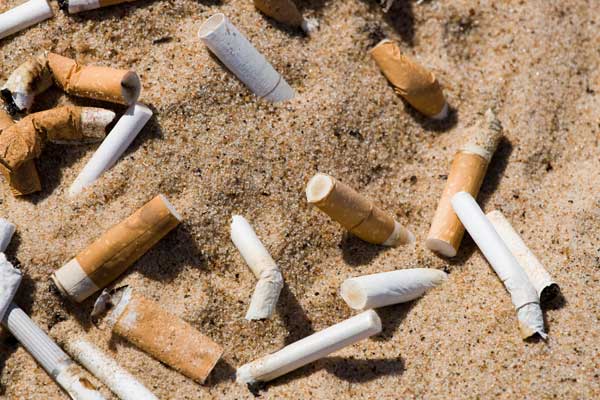A group of committed activists is targeting a product it describes as comprising the number-one man-made contaminant in the world’s oceans – cigarette butts, according to an NBC News story.
A leading tobacco industry academic, a California lawmaker and a worldwide surfing organization are among those arguing cigarette filters should be banned.
The nascent campaign hopes to be bolstered by linking activists focused on human health with those focused on the environment.
“It’s pretty clear there is no health benefit from filters,” said Thomas Novotny, a professor of public health at San Diego State University. “They are just a marketing tool. And they make it easier for people to smoke.
“It’s also a major contaminant, with all that plastic waste. It seems like a no-brainer to me that we can’t continue to allow this.”
However, it has proved difficult in the past to prevent the littering of cigarette butts.
According to the NBC News story, a California assemblyman who proposed a ban on cigarettes with filters couldn’t get the proposal out of committee. And while a New York state senator wrote legislation to create a rebate for butts returned to redemption centers, that idea stalled. San Francisco is said to have made the biggest inroad: a 60-cent per-pack fee to raise roughly $3 million a year to help defray the cost of cleaning up discarded cigarette filters, though the story did not say whether this initiative had met with success.
But cigarette butts have now fallen into the sights also of one of the nation’s biggest anti-smoking organizations, the Truth initiative, which last week used the nationally-televised Video Music Awards to launch a new campaign against these butts.
As in a couple of previous messages delivered via social media, the organization is going after ‘the most littered item in the world’.
The story said that tobacco companies, fearful of being held responsible for cigarette litter, had launched a number of initiatives.
But, in part, they appear to be up against recalcitrant smokers. Academics who followed prevention and clean-up campaigns said they encountered an essential problem: most smokers preferred to flick their butts.
‘In industry focus groups, some smokers said they thought filters were biodegradable, possibly made of cotton; others said they needed to grind the butts out on the ground, to assure they didn’t set a refuse can afire; others said they were so “disgusted” by the sight or smell of cigarette ashtrays, they didn’t want to dispose of their smokes that way,’ the story said. ‘In one focus group cited in industry documents, smokers said tossing their butts to the ground was “a natural extension of the defiant/rebellious smoking ritual”.’
Activists go after butts











